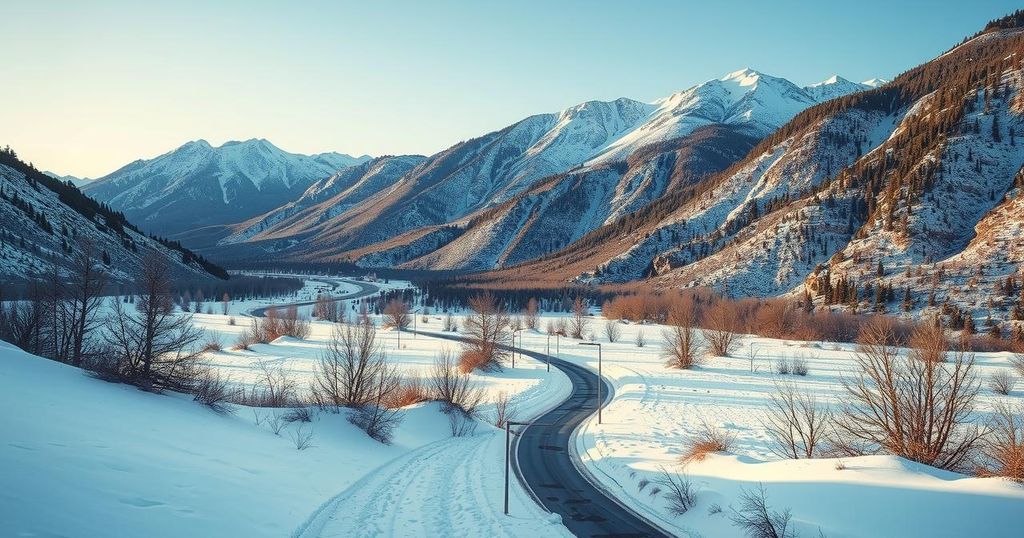A report from Climate Central predicts that winter could shorten by two to ten days in the Mountain West, with states like Arizona, New Mexico, and Nevada losing about ten below-freezing days annually due to climate change. Higher elevation areas like Wyoming and Colorado have experienced varying degrees of winter day loss, with significant implications for ski resorts and ecosystems due to altered precipitation patterns and ecological disruptions.
Recent findings indicate that winter is expected to shorten by two to ten days in the Mountain West region, as delineated in a report from Climate Central. This phenomenon is attributed to a decrease in below-freezing days, exacerbated by climate change. Regions such as Arizona, New Mexico, and Nevada experience an average annual loss of approximately ten such days, highlighting their inherently warmer climates.
Kristina Dahl, Vice President of Science at Climate Central, emphasized the heightened impact of warming in these warmer states, noting that even slight increases in temperature can alter precipitation patterns significantly. In contrast, states like Wyoming, Colorado, Utah, and Montana retain more winter days due to their higher altitudes, resulting in an average loss of only two below-freezing days in Wyoming.
Idaho and Colorado have each reported a loss of four winter days on average. This continuing trend poses considerable threats to ski resorts that might need to adjust their operational seasons as well as to local ecosystems. “If it is warm in the winter and flowers bloom early, the pollinators may not be there yet to pollinate those flowers and sustain crops,” Dahl remarked, underlining the potential ecological ramifications.
Additionally, reduced snowfall can jeopardize water supplies, further complicating the situation in the region.
The Mountain West states are experiencing notable changes in climate patterns, particularly concerning winter duration. As climate change progresses, regions that traditionally enjoy substantial snowfall and cold temperatures are seeing a trend of decreasing winter days. This presents considerable challenges not only for recreational industries like skiing but also for local ecosystems and agricultural systems depending on synchrony between seasonal weather patterns and ecological activities such as pollination.
The implications of climate change on winter in the Mountain West are profound. With projected reductions in winter days, ski resorts may be forced to adjust their seasons, and crucial ecological processes, including pollination and water supply management, are at risk. These transformations underscore the urgent need for understanding and addressing climate change impacts in the region.
Original Source: www.kanw.com







